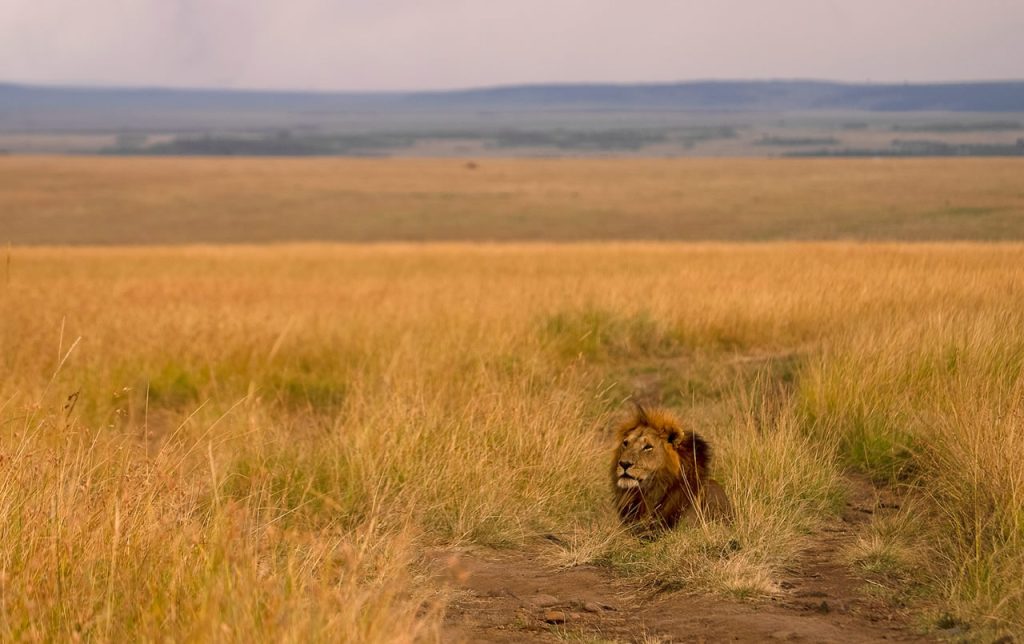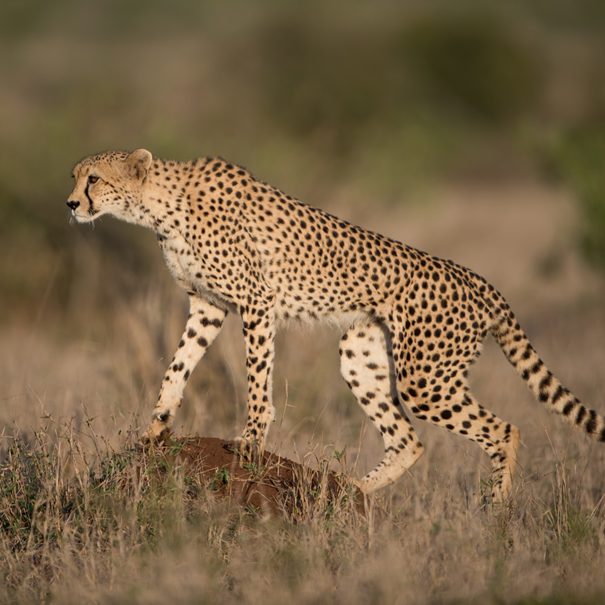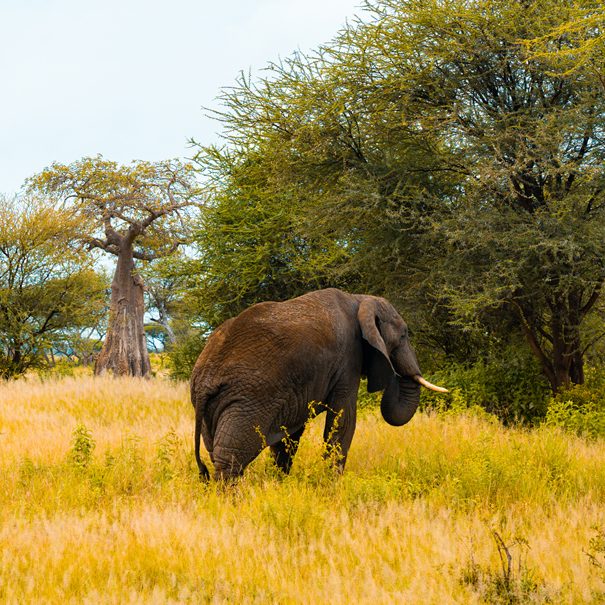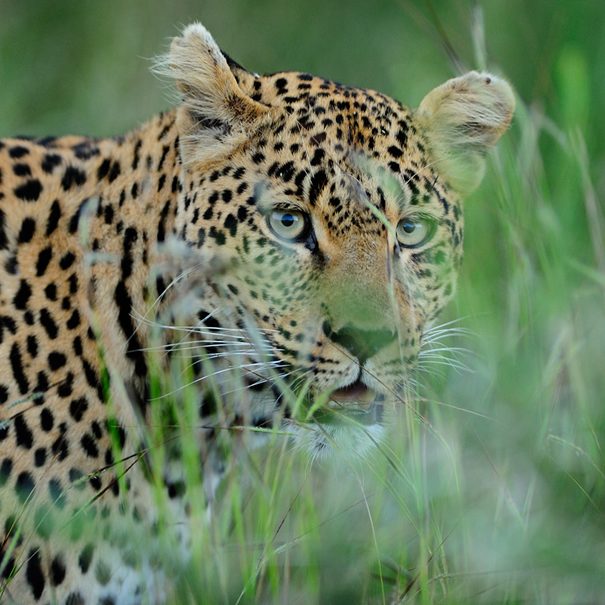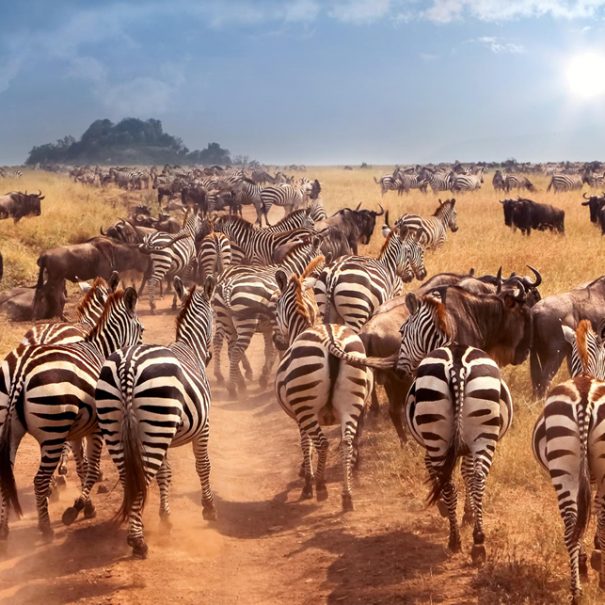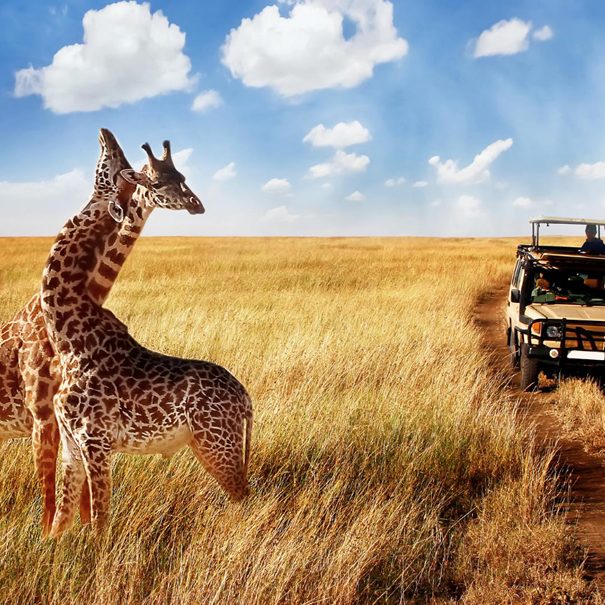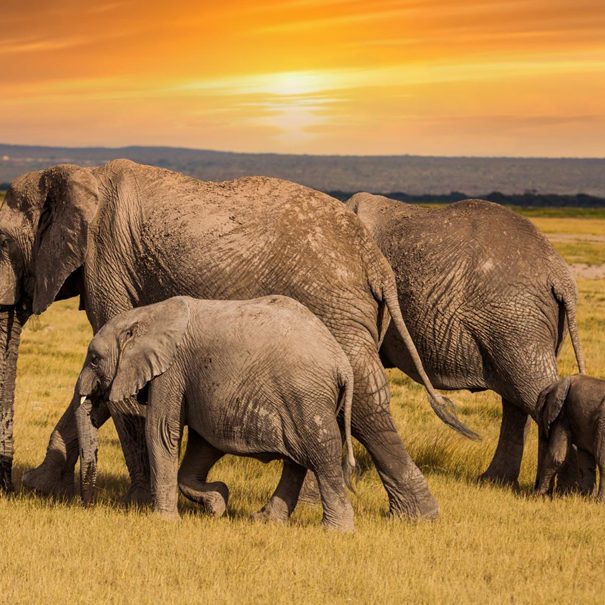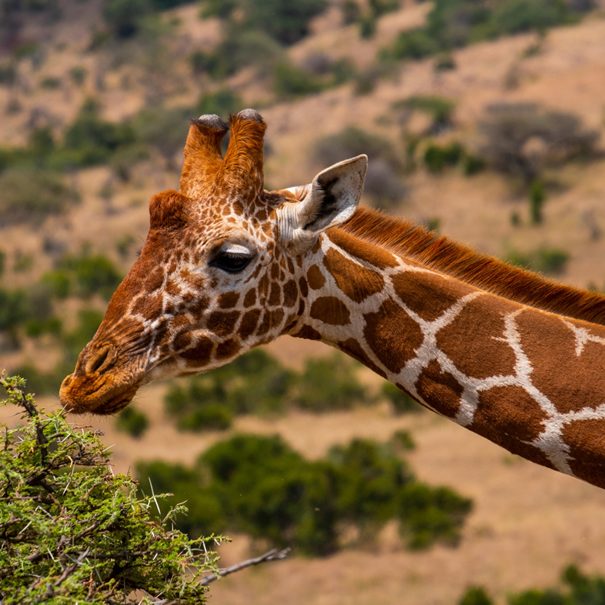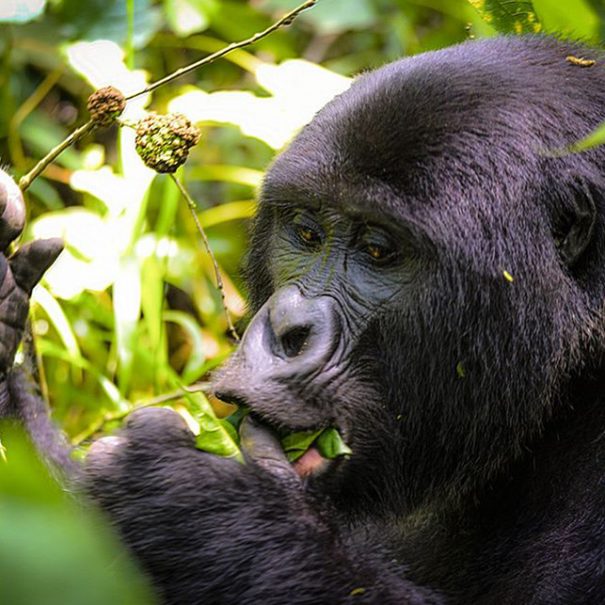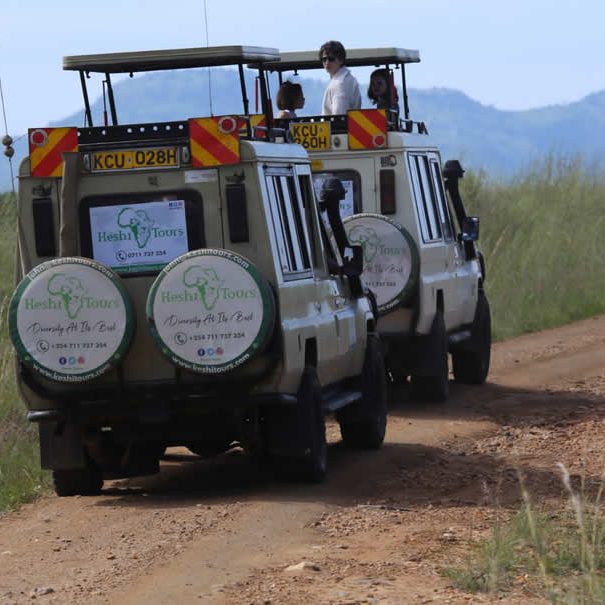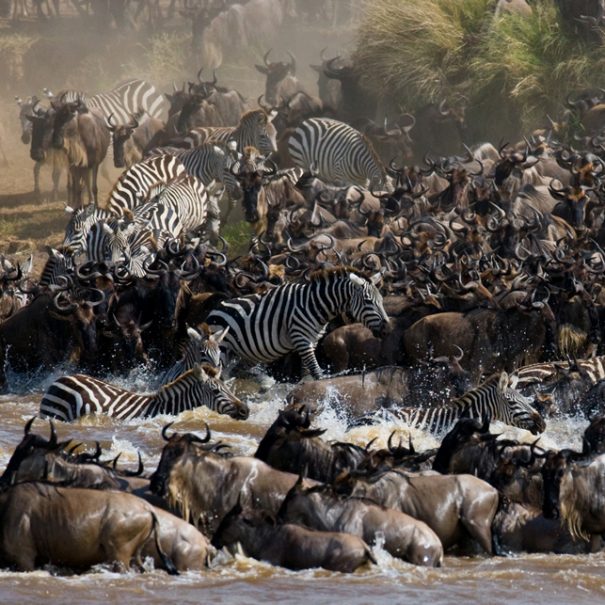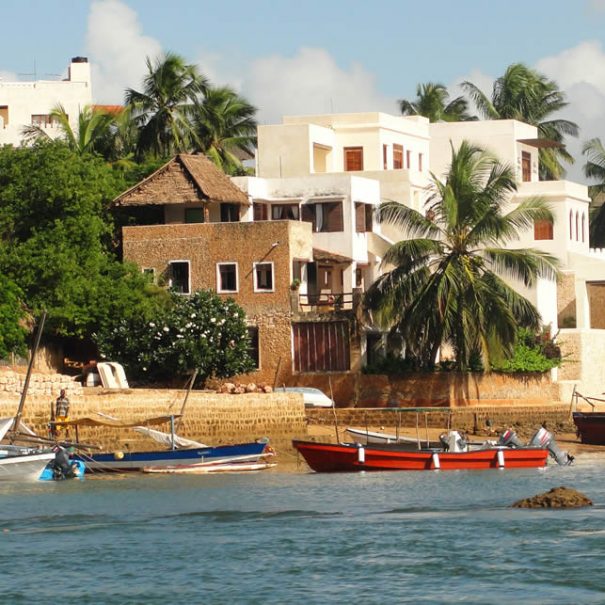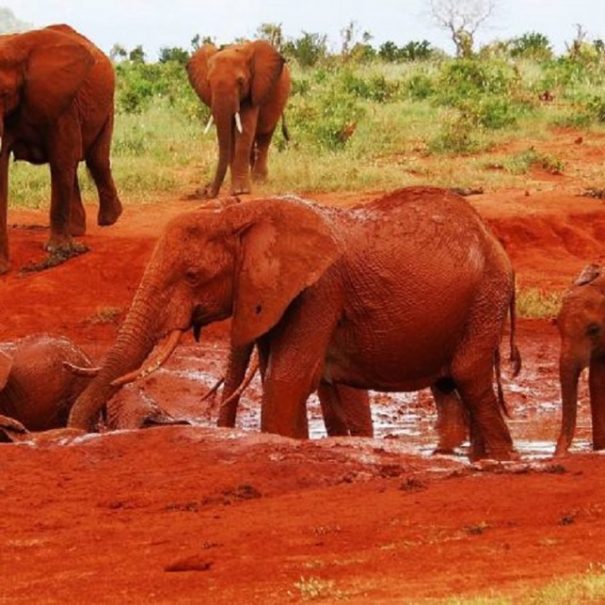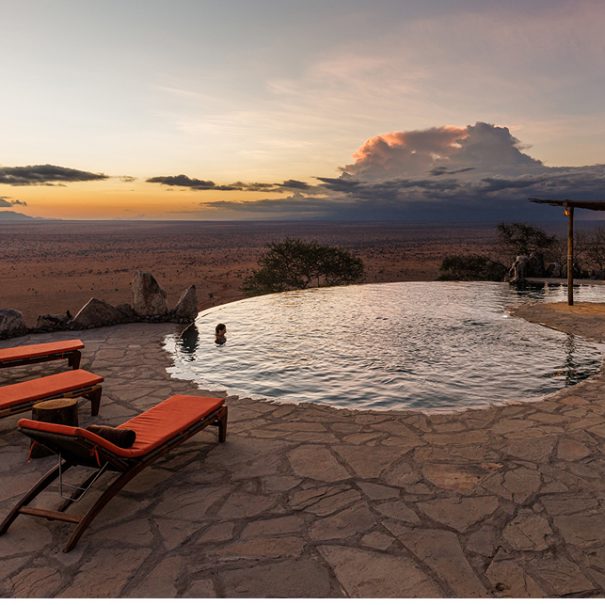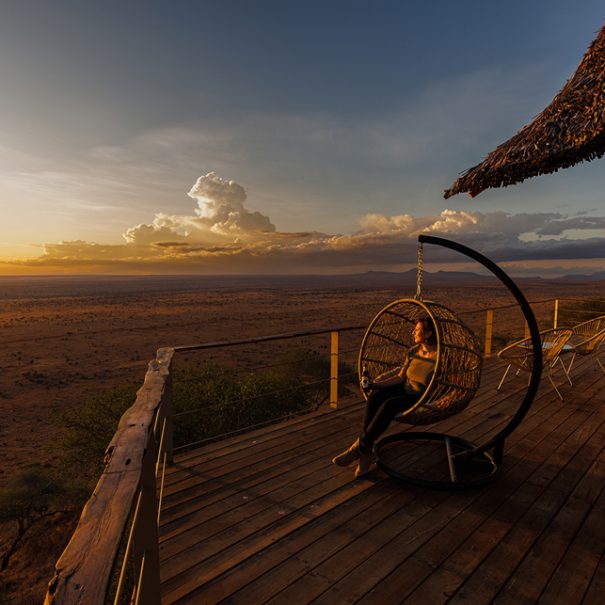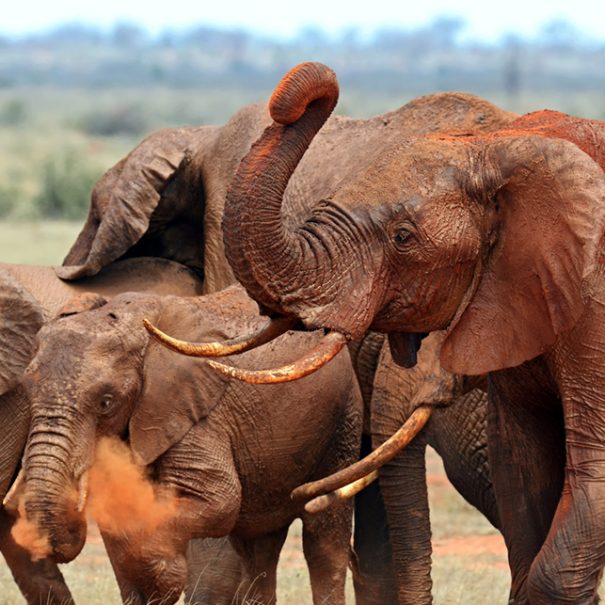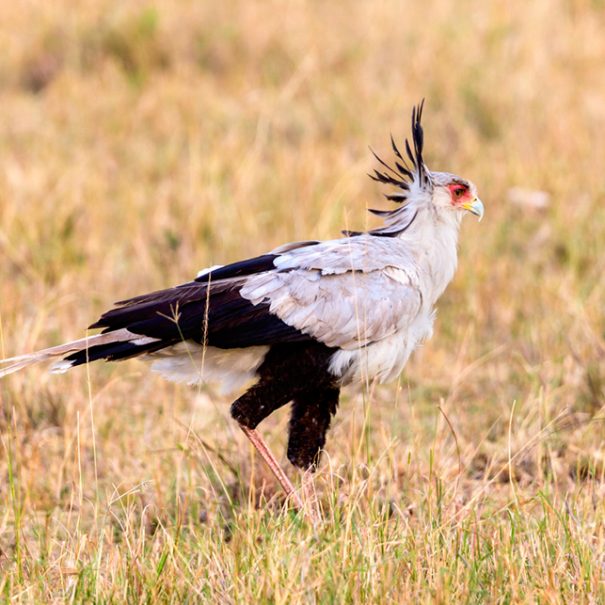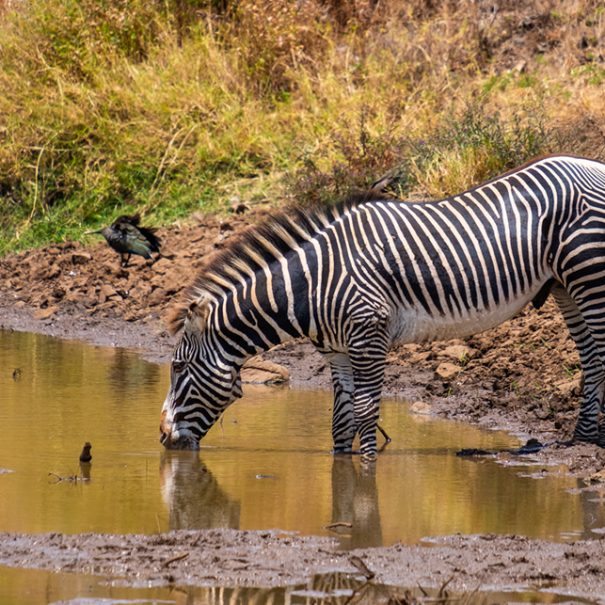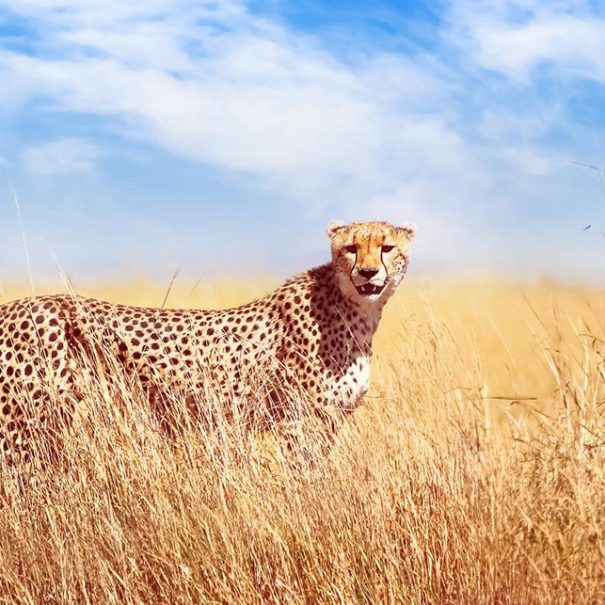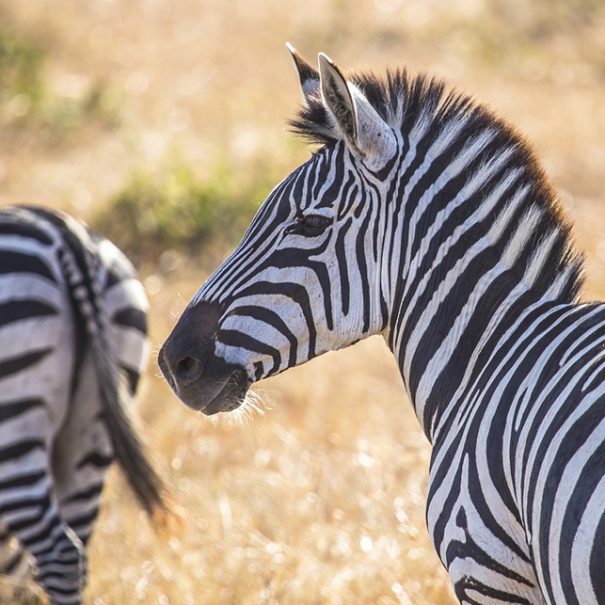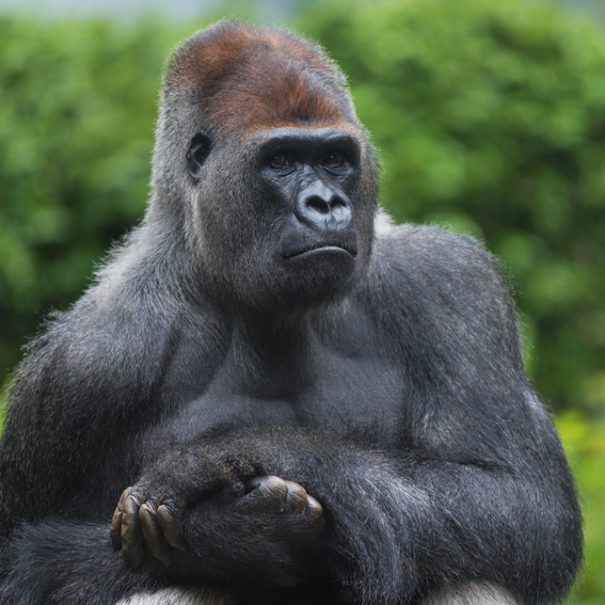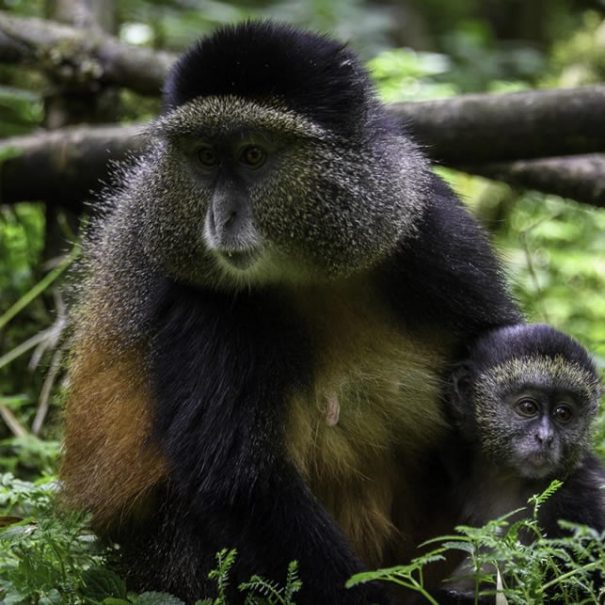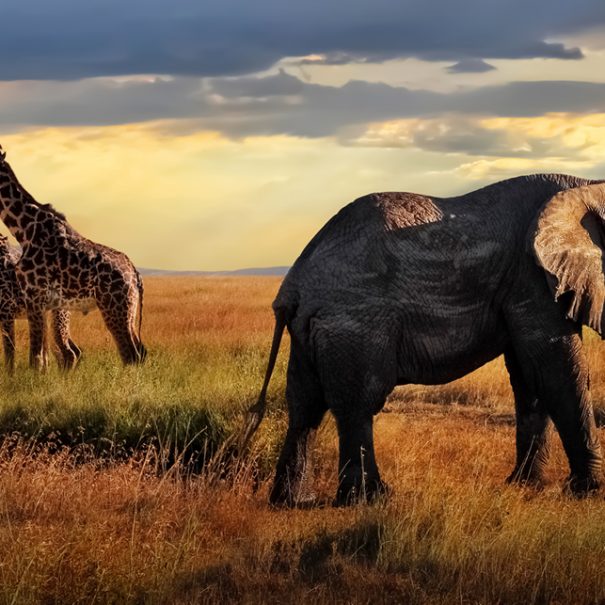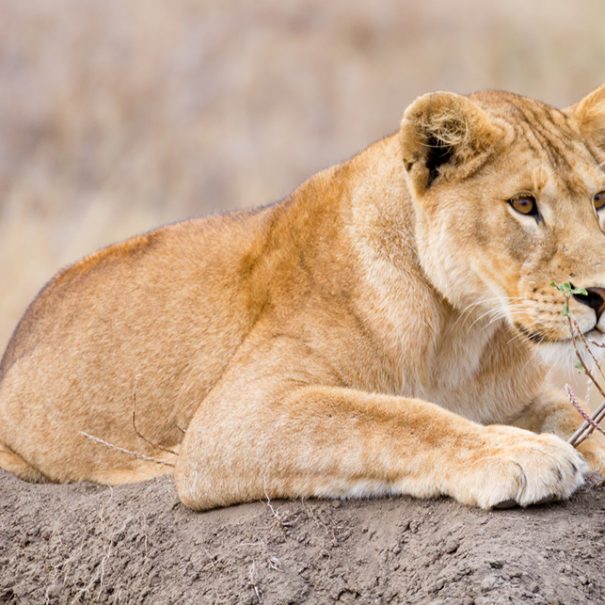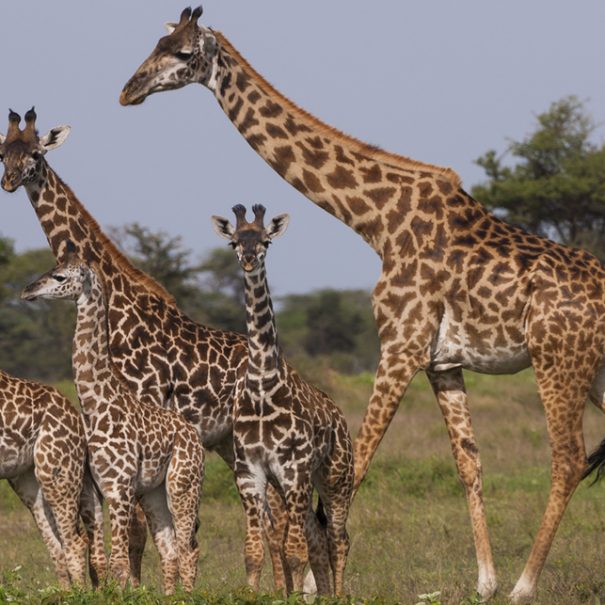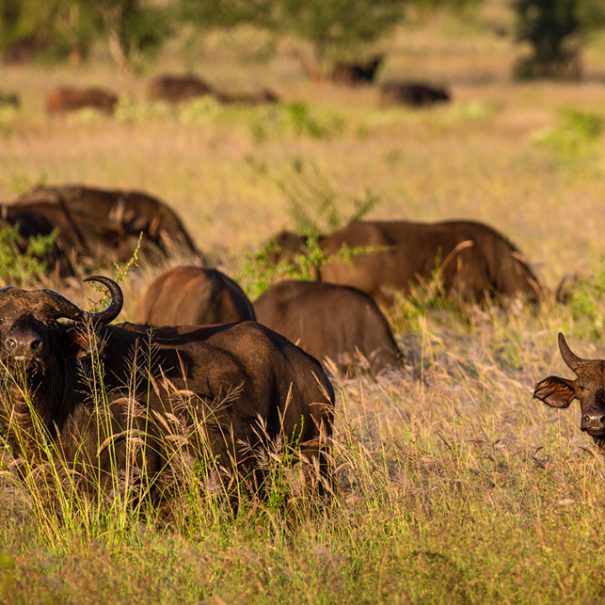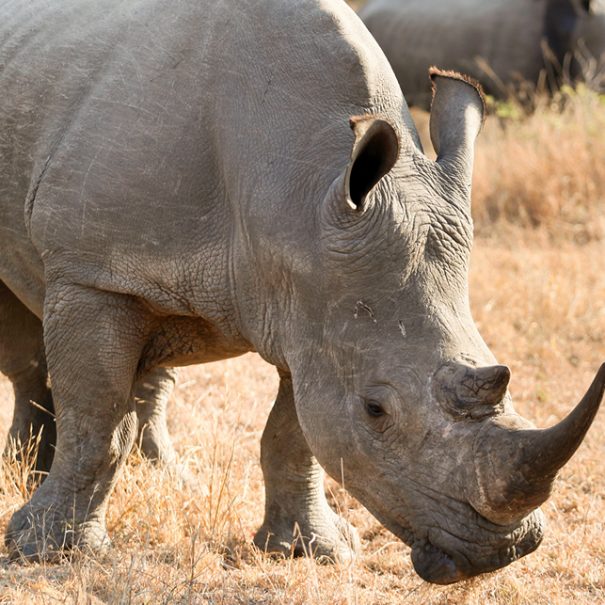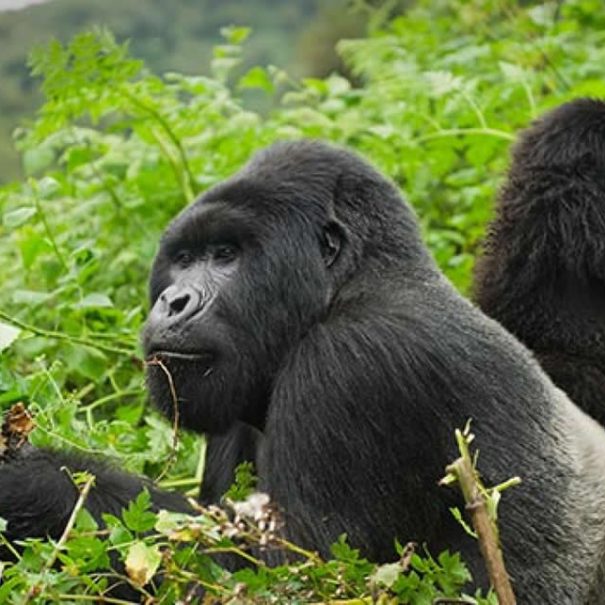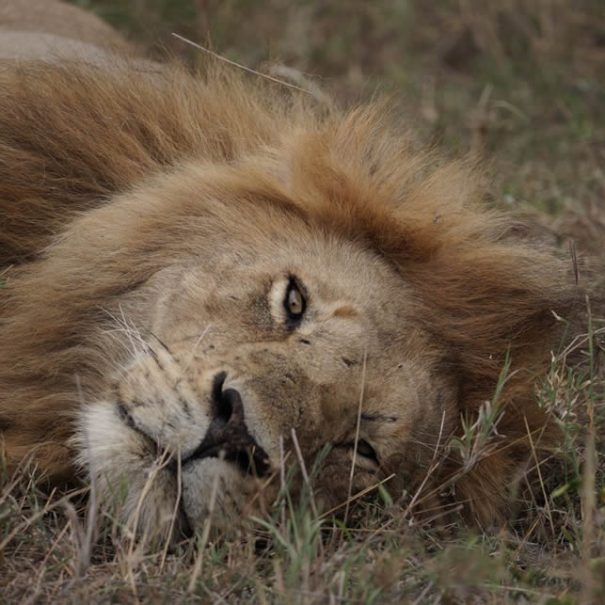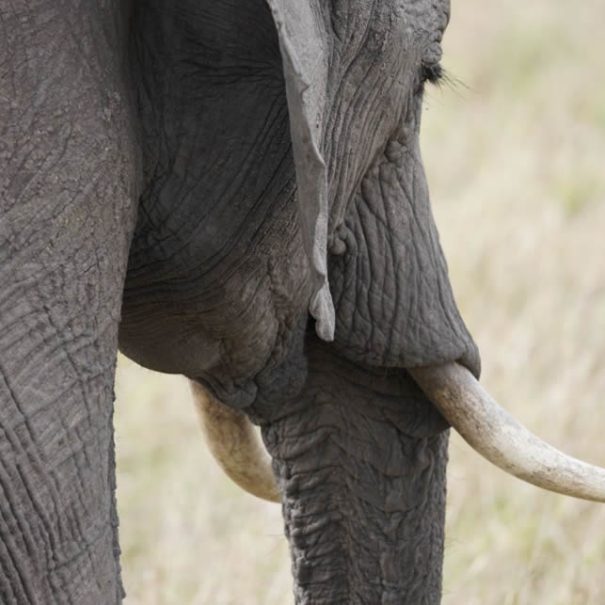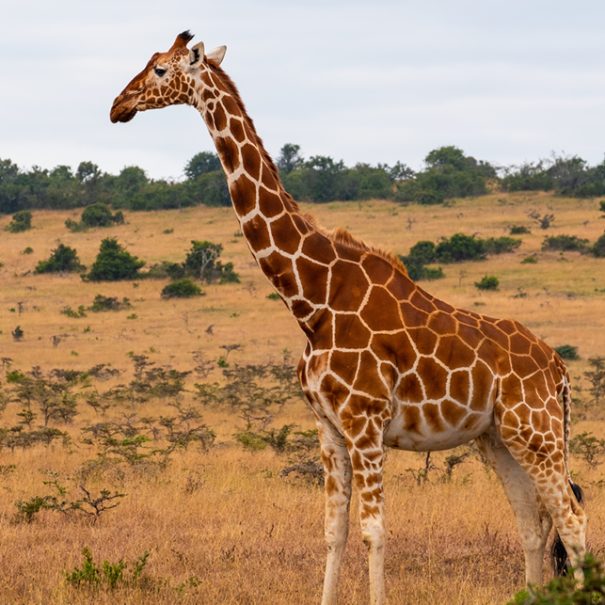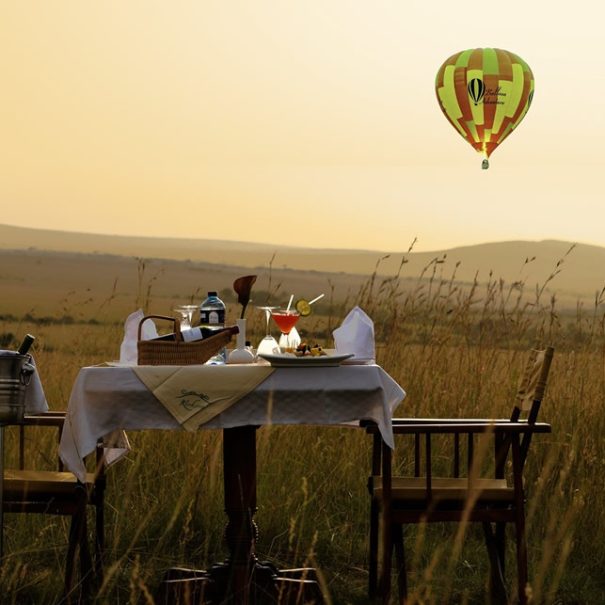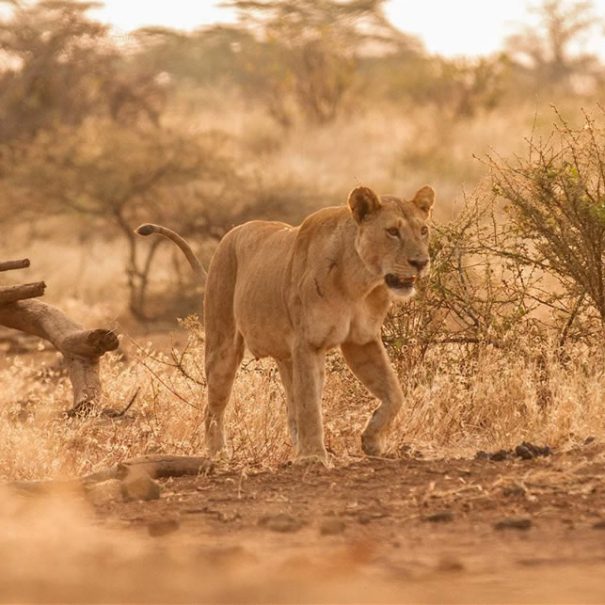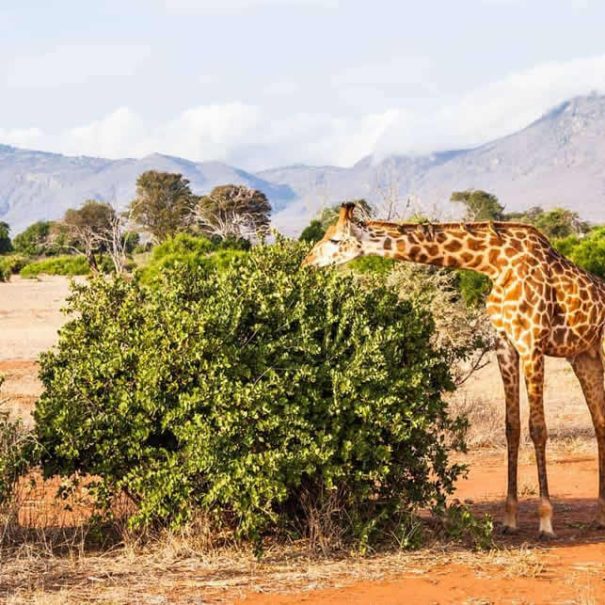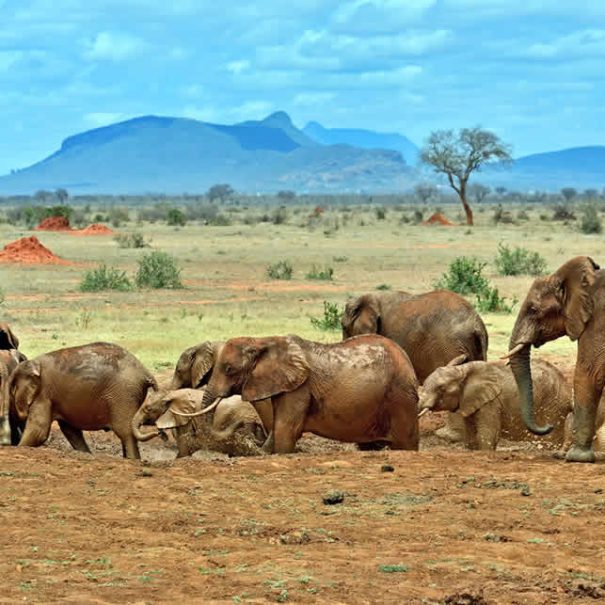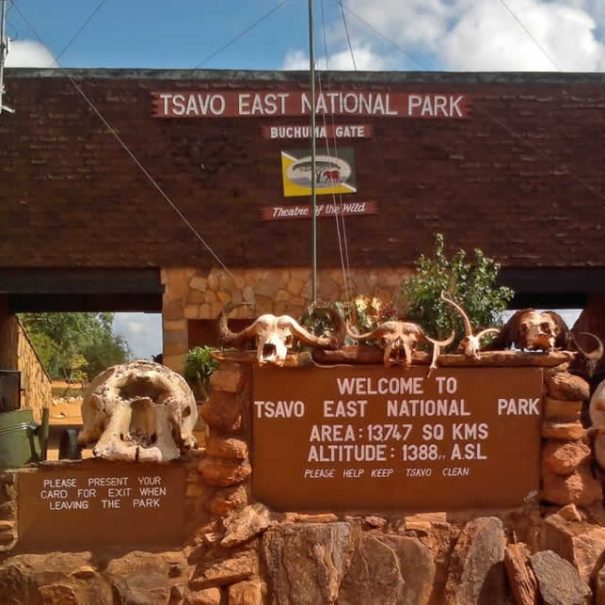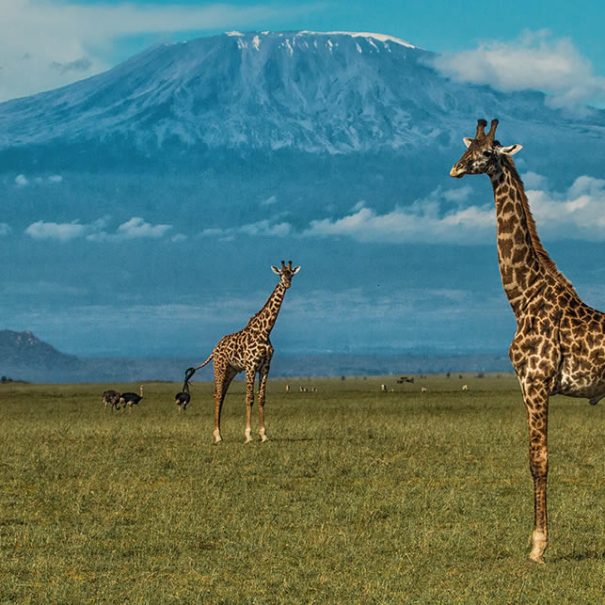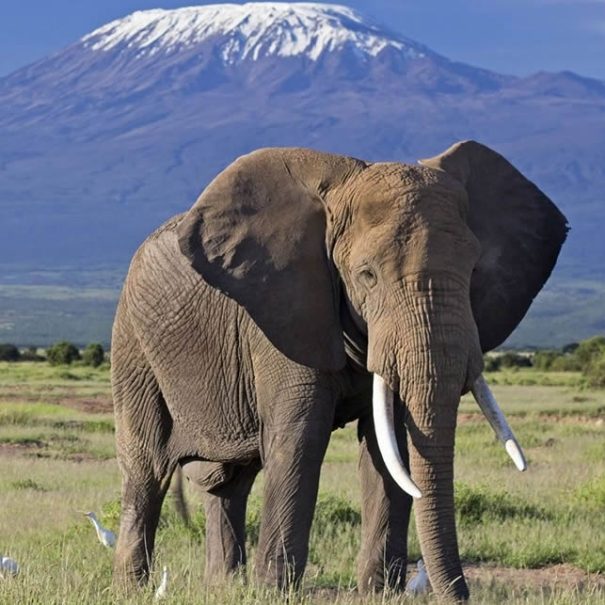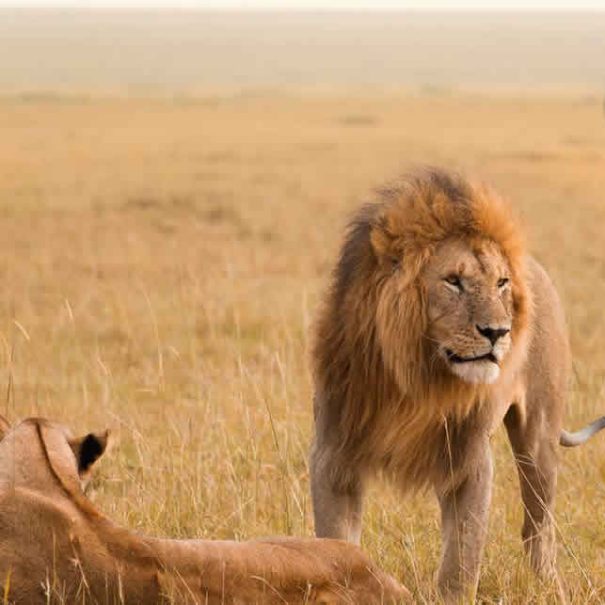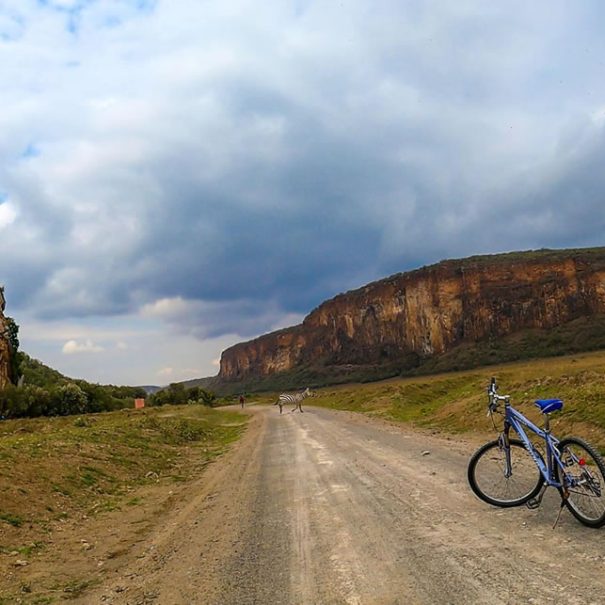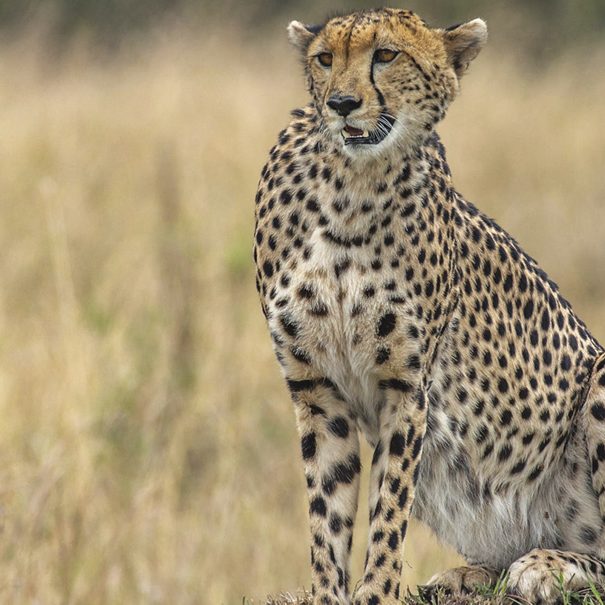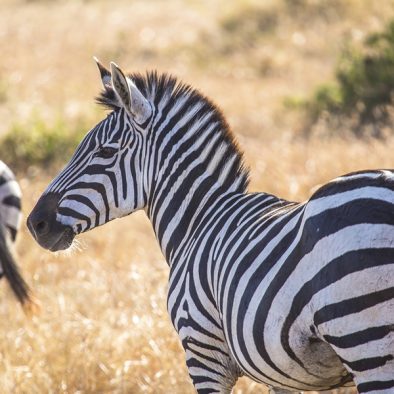Masai Mara, situated in southwestern Kenya, is one of Africa’s most iconic and celebrated safari destinations. This expansive game reserve is an integral part of the larger Mara-Serengeti ecosystem, renowned for its diverse wildlife, stunning landscapes, and rich cultural heritage. Here’s a comprehensive Masai Mara safari guide that will prepare you to an exciting safari.
Geography and Location
Masai Mara is located in the Rift Valley Province of southwestern Kenya, sharing a border with Tanzania’s Serengeti National Park to the south.
Covering approximately 1,510 square kilometers, the reserve is characterized by vast open grasslands, acacia-dotted savannas, and the meandering Mara River.The landscape provides a picturesque backdrop for wildlife viewing.
The characteristic Mara scenery is golden savannah: flat grasslands with abundant grazing and ideal terrain for cheetahs to hunt Thomson’s gazelle. It also features small pockets of riverine forest and clumps of trees – elephants have done a good job of maintaining much of the Mara clean of trees and forests throughout the years, giving it its particular openness.
Nairobi, the capital and primary transportation center of Kenya, is situated roughly 224 kilometers (139 miles) east of the eastern boundary of the Mara. Typically, safari visitors arrive by plane at Jomo Kenyatta International Airport, then transfer to Wilson Airport, which is located nearby, to reach the many airstrips of the Mara. It’s common to drop off other travelers at one airfield before continuing on your own; it’s similar to a “bus service system” for the safari.
Planning Your Masai Mara Safari
Because of the abundance of wildlife and the moderate climate, there is no ‘ideal time’ to visit the Masai Mara for general game viewing but below are key while planning a Masai Mara Safari.
- Season of Migration
The Great Migration, often known as the “World Cup of Wildlife,” is a defining event in Masai Mara. Millions of wildebeest, zebras, and other herbivores are migrating in search of greener pastures.
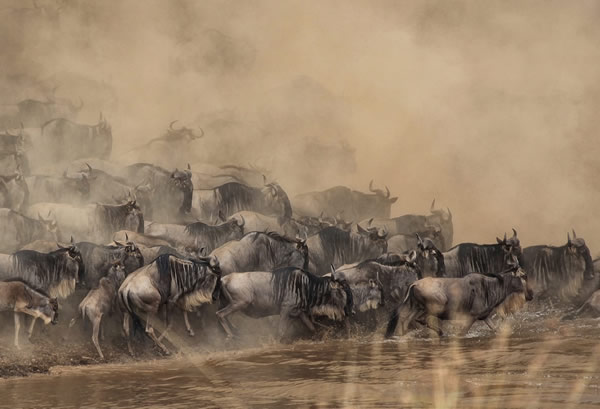
- Suitable months
The migration usually takes place between July and October, with the herds crossing the Mara River in August and September. The opportunity to watch river crossings and predator-prey interactions is at its peak during this period.
While the migration is a highlight, it’s important to know that the exact timing can vary depending on weather trends. Consult with safari experts or guides who are knowledgeable with the area to increase your chances of witnessing this spectacular natural event.
- Considerations for the Weather
The weather in Kenya is typically moderate and varies from dry to wet seasons.
- Dry Season (June to October)
Benefits: The dry season is thought to be the greatest period for wildlife viewing. The vegetation is sparse, and animals congregate around water sources, making them more visible. The weather is temperate and pleasant in general, with colder temperatures in the mornings and evenings.
The dry season coincides with the migration, increasing the likelihood of seeing river crossings as the herds face the difficulty of crossing crocodile-infested rivers.
Clear skies and favorable lighting conditions make it an excellent time for photography.
- Wet Season (November to May)
Benefits: The wet season produces beautiful landscapes with blooming foliage and flowers. Birdlife abounds, and newborn animals are common. During this time, accommodations may offer reduced rates.
Considerations: Because of muddy roads, some places may become impassable, and wildlife disperses as water becomes more easily available across the reserve.
Birdwatching: Because migrating birds join the resident species during the rainy season, birdwatchers may find the wet season especially intriguing.
Conditions for Photography: While the views are colorful, the increasing foliage might make animal spotting difficult.
- Shoulder Seasons (March-May and November-December)
Shoulder seasons provide a balance between the dry and wet seasons. Accommodations with fewer tourists may offer a more exclusive experience.
- Duration of Masai Mara Safari
Determining the optimal duration of your stay in Masai Mara is a crucial aspect of planning a safari. The ideal length of stay depends on various factors, including your interests, budget, and the specific experiences you seek. Here are some considerations to help you decide on the duration of your safari:
- Wildlife Viewing Goals
Key Wildlife Events: If witnessing the Great Migration is a priority, a stay of at least 4 to 7 days is recommended during the peak migration season (July to October). This allows flexibility in exploring different areas of the reserve and increases the chances of observing various stages of the migration.
General Wildlife Exploration: For a comprehensive wildlife experience, including encounters with the Big Five and other species, a stay of 3 to 5 days is often sufficient. This provides ample time for multiple game drives, increasing the likelihood of diverse wildlife sightings
- Photography Opportunities
Extended Stay for Photography: Photographers may benefit from a more extended stay, allowing for patient observation and capturing unique moments. A 7 to 10-day stay enables photographers to explore different lighting conditions, varied landscapes, and animal behaviors.
- Cultural Experiences
Engaging with the Maasai Culture: If cultural interactions with the Maasai people are a priority, consider allocating additional time for visits to local villages, participating in cultural activities, and gaining a deeper understanding of Maasai traditions. This might add an extra day or two to your itinerary.
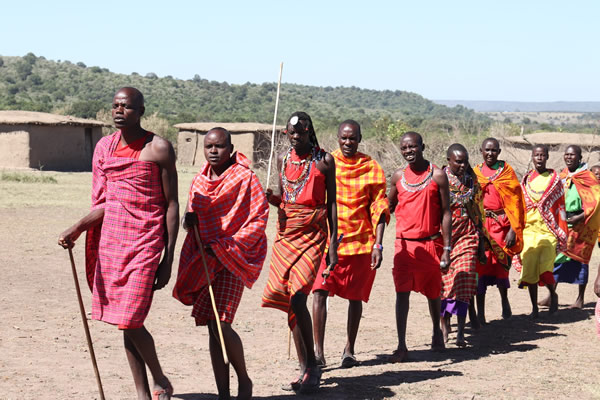
- Budget Considerations
Economic Factors: The duration of your stay can significantly impact your budget. Longer stays generally result in higher costs for accommodation, meals, and activities. Balancing the desired experience with budget constraints is crucial when planning the length of your safari.
- Travel Constraints
Travel Time: Consider the time it takes to reach Masai Mara, whether by air or road. If your schedule allows, a longer stay can help compensate for travel time, providing more days for safari activities.
Itinerary Flexibility: Allowing for a more extended stay provides flexibility in your itinerary. Unforeseen events, weather conditions, or missed wildlife sightings can be accommodated without feeling rushed.
- Personal Preferences
Relaxation vs. Adventure: Assess whether you prefer a more relaxed pace with downtime at your accommodation or a more adventurous itinerary with multiple daily activities. Tailor the duration to match your comfort level and desired level of activity.
- Seasonal Considerations
Seasonal Impact: The time of year may influence the duration of your stay. During the wet season, some areas may be less accessible, potentially affecting the range of activities. Conversely, the dry season allows for more exploration.
- Selecting a Masai Mara Safari Operator
Making the appropriate safari operator choice is essential to guarantee an enriching and unforgettable trip in Masai Mara. Your overall satisfaction, safety, and the quality of your safari can all be greatly impacted by the operator you select. When making this choice, keep the following points in mind:
- Reviews and Reputation
Research: Start by looking for safari companies that have a significant presence in Masai Mara. Seek out businesses that have a track record of success, good ratings, and endorsements from prior customers.
Online Resources: Use internet review sites, travel forums, and online platforms to learn about other tourists’ experiences with particular safari operators. Take note of both compliments and criticism.
- Licensing and Recognition
Check the Credentials: Verify that the safari operator complies with industry standards and is authorized and accredited. A valid certification attests to adherence to moral principles, professional conduct, and safety standards.
- Knowledge and Proficiency
Years in Operation: Take into account the safari operator’s background. An organization with a longer experience in the field is probably more knowledgeable about the area, the local fauna, and the logistical difficulties.
Specialization: Certain safari operators focus on offering specific kinds of safaris, such photo safaris or cultural immersion safaris. Select an operator whose specialization fits your interests.
- Staff and Guides
Qualified Guides: An excellent safari experience is enhanced by knowledgeable and well-trained guides. Find out about the training and background of the guides that the safari operator hires.
- Safety precautions
Vehicle Safety: Examine the safari vehicles’ state. They ought to be kept up properly, have safety measures, and abide by regional laws.
Emergencies Procedures: Find out about the operator’s emergency procedures, such as their plans for evacuation, first aid supplies, and communication systems.
- Route and Personalization
Tailored Experiences: Whether you’re interested in wildlife photography, cultural exchanges, or certain animal encounters, a respectable safari operator should provide customised itineraries to meet your interests.
- Flexibility
Evaluate the operator’s ability to modify the schedule in response to changes in the weather, the movements of wildlife, and the preferences of the clients.
- Transparent Pricing
Recognize the components of the bundle and the pricing structure. Make sure all inclusions are clearly disclosed and that there are no additional fees.
- Accountability for the Environment
Conservation Methods: Select providers who are dedicated to environmentally responsible and sustainable methods. This entails reducing the negative effects on the environment, aiding regional conservation initiatives, and encouraging ethical travel.
- Customer Support
Communication: During the planning phase, evaluate the safari operator’s responsiveness and communication style. An organized, customer-focused business will communicate clearly and promptly.
Customer Service: Ask about customer service when on safari, particularly if there are any problems. A trustworthy operator ought to have procedures in place for quickly resolving issues.
- Considering the Budget
Value for Money: Although keeping a tight budget is important, value for money should take precedence above lowest price. The whole safari experience can be greatly improved by making a somewhat more expenditure with a reputed operator.
- How to Get to Safari Masai Mara
- Flights to Nairobi: Travelers starting a Masai Mara safari often arrive via Nairobi, the capital city of Kenya. The main international airport in the nation is Jomo Kenyatta International Airport (NBO), located in Nairobi.
- International Flights: Reservations for flights to Nairobi are available to tourists from all around the world. Direct flights to Nairobi are offered by many airlines from key cities across Europe, Asia, and the Middle East.
- Connecting Flights: Passengers may choose connecting flights with layovers in different cities if direct flights are not available. There may be scheduling and financial flexibility when taking connecting flights.
- Regional Flights: Regional flights to Nairobi are frequent for people who are already in East Africa or nearby nations. Nairobi’s Wilson Airport (WIL) is the hub for domestic travel and a popular connecting point to Masai Mara.
- Airlines: Kenya Airways, British Airways, Emirates, Ethiopian Airlines, and other international and regional carriers offer flights to Nairobi.
- Domestic Flights to Masai Mara: Taking a domestic flight to the Masai Mara is the next phase of the journey, which begins in Nairobi. Domestic aircraft usually arrive in Keekorok, Olkiombo, and Mara Serena, among other airstrips in the Masai Mara region, after taking off from Wilson Airport in Nairobi.
- Flight Time: The one- to one-and-a-half-hour domestic flight to Masai Mara offers passengers a bird’s-eye perspective of the Kenyan terrain.
- Airlines: A number of regional airlines offer daily flights to Masai Mara, including Safarilink, AirKenya, and ALS. Since small planes are frequently used for these journeys, it is crucial to follow baggage weight regulations.
- Land Transfers: If traveling by car is more appealing than flying, there several ways to get from Nairobi to Masai Mara.
Travel Planning Advice:
- Booking in Advance: It’s best to book flights well in advance, particularly during popular travel seasons, to ensure favorable fares.
- Visa criteria: Before boarding your aircraft, make sure all required documentation is in order and check the criteria for entry into Kenya.
- Airport Transfers: To guarantee a seamless transition from the airport to your lodging, schedule airport transfers in advance.
The journey to Masai Mara typically begins with international flights to Nairobi, followed by a connecting domestic flight or road transfer to the reserve. Careful planning, including booking flights in advance and ensuring compliance with visa requirements, contributes to a seamless and enjoyable start to the safari adventure.
- Masai Mara Safari Entry Requirements and Visa Information
It is necessary to adhere to Kenyan visa laws and entry procedures in order to travel to Masai Mara on a safari. Here’s a summary of the important things to think about:
- A passport
Make sure your passport is good for at least six months after the day you intend to leave Kenya.
Examine your passport for any blank visa pages, as immigration may need room for stamps.
- Visa prerequisites:
Visa for the Majority of Nationalities: In order to enter Kenya, most nationalities need a visa. It is advised that visitors secure their visas in advance of their trip.
Exemptions from Needing a Visa: Certain countries do not require a visa for entry. Checking the most recent information and confirming your eligibility for visa exemptions is crucial, nevertheless.
- Types of Visas
A single entry visa is good for one visit to Kenya during a period of ninety days from the date of issuance.
Transit Visa: For visitors who are passing through Kenya on their way to another location. Good for a maximum of 72 hours.
Travel between Kenya, Uganda, and Rwanda is permitted with an East Africa Tourist Visa. Perfect for anyone organizing a safari over several countries.
- How to Apply for a Visa
Online Application: Kenya launched the eVisa system, which enables visitors to submit their visa applications online. The procedure is simple and entails completing an online application and making the necessary payments.
Visa on Arrival: Although a visa can be obtained at the airport upon arrival, it is best to obtain one in advance to prevent any delays or issues.
- Documents Needed to Apply for a Visa
Passport: A crisp scan of your passport’s biodata page.
A current passport-sized photo that satisfies certain standards.
journey itinerary: Evidence of your trip arrangements, including specifics about the round-trip journey.
A confirmation of your reservation for lodging during your time in Kenya.
Travel Health Insurance: Evidence of travel health insurance may be required for some visa applications.
- Immunizations and Medical Conditions
Verify the most recent immunization schedules and health standards for visitors to Kenya. Travelers entering or passing through nations where there is a chance of yellow fever transmission must have a yellow fever vaccination.
- Customs Statement
Understand the rules on bringing equipment, personal belongings, and any other items that can be restricted into Kenya when it comes to customs.
- Currency Disclosure
The quantity of currency that can be carried into Kenya is governed by regulations. Make sure you follow these rules to prevent any problems at customs.
- Extra Advice for Travelers
Verify Any Updates: In order to stay informed about any recent modifications to visa requirements, check with the Kenyan embassy or consulate in your home country before leaving.
Early Submission: To allow for processing time, it is best to apply for your visa well in advance of the dates you want to go.
- Tourist Visa for East Africa
Consider getting an East Africa Tourist Visa if you intend to travel to Kenya, Uganda, and Rwanda among other East African nations. This can be a practical choice for a full safari experience.
- Accommodation Options in Masai Mara Safari
Here is a quick rundown of the Masai Mara safari lodging options:
- Safari Resorts
Compared to tented camps, safari lodges in Masai Mara provide a more substantial and long-lasting structure. These are frequently bigger hotels with cozy accommodations, luxurious amenities, and a range of services.
accommodation kinds: A variety of accommodation kinds, such as suites or cottages, are usually available in lodges, offering varying degrees of luxury and space.
Convenience and Comfort: Lodges offer a better standard of comfort thanks to amenities like air conditioning, electricity, and en suite bathrooms.
Public Spaces: Dining rooms, lounges, swimming pools, and observation decks are examples of common areas found in lodges that offer locations for unwinding and mingling.
Viewing Wildlife: A lot of lodges are positioned to provide breathtaking views of the surrounding terrain and fauna, and many of them even provide game drives right from the lodge.
- Tented Camps
They offer lodging in roomy fully furnished tents with a more immersive and genuine safari experience.
Canvas Tents: These tents can have an own veranda in addition to cozy beds and en suite bathrooms.
Near Nature: While still offering all the necessities, tented camps seek to bring visitors closer to the natural world. An environment that is distinct and immersive is created by the noises of the wild and the canvas walls.
Restricted Connectivity: Although some tented camps provide hot water and electricity, some could be more basic and offer a more genuine bush experience with less connectivity.
Intimate Setting: Due to its smaller size, tented camps tend to be more intimate, emphasizing the natural settings while providing individualized service.
- Private Conservancies
Intimate Experience: When compared to the busier parts of the national reserve, private conservancies frequently provide a more intimate and private safari experience.
Off-Road Driving: Conservancies frequently offer more freedom when it comes to off-road driving, which makes seeing wildlife up close and personal.
Guided Nature Walks: A few conservancies allow guests to go on guided nature walks, which let them explore the wilderness on foot while being led by knowledgeable rangers.
Restricted Number of Vehicles: Private conservancies typically have a lower vehicle count, which lessens their environmental effect and guarantees a more tranquil safari experience.
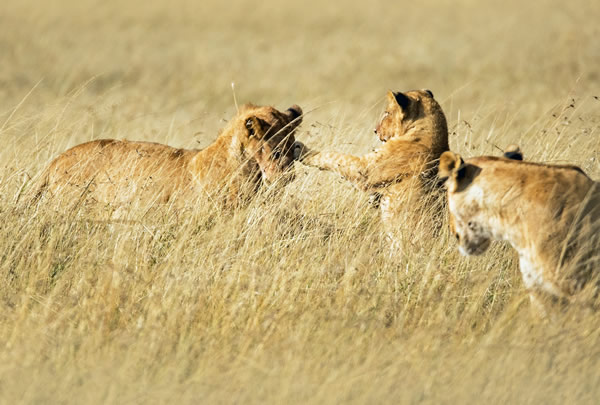
- The National Reserve
Rich Wildlife: The Masai Mara National Reserve draws a lot of tourists due to its rich wildlife and the yearly Great Migration.
Busy Times: The national reserve can get busy at the busiest times of year, particularly in the vicinity of well-liked spots for wildlife viewing. This could have an effect on how unique the safari experience is.
Rules: When it comes to seeing animals, national reserves have particular rules that include prohibitions on off-road driving and other activities.
- Making Advance Reservations for Accommodation
High Demand: During the Great Migration and other busy times of the year, there is a significant demand for lodging in Masai Mara. If you reserve in advance, your desired accommodations and dates will be guaranteed.
Types of Accommodation: Making reservations in advance enables you to choose from a greater range of accommodations that suit your interests, whether you’re staying at a safari lodge, tented camp, or a particular conservancy.
Package offers: If you make your reservation in advance, you might be able to take advantage of package offers that offer better value for your money and include meals, safari activities, and occasionally even domestic flights.
Special Requests: Making reservations in advance can help you to get any special accommodations you may have, including a certain hotel type, a room with a view, or dietary restrictions.
- Masai Mara Safari Activities
These are some of the most fascinating activities found in the mara safari.
- Morning game drives
Timing: Usually carried out just after daybreak in the early morning.
Wildlife Activity: Great for seeing animals while they’re at their busiest. Predators are frequently in motion, and the lighting is ideal for taking pictures.
Scenic Beauty: Early game drives highlight Masai Mara’s breathtaking scenery in the gentle early light.
- Afternoon drives for games
Timing: Held just before dusk in the late afternoon.
Nocturnal Wildlife: Some creatures become more active when the day’s heat begins to fade. Predators can be seen getting ready for their nightly activities at this time of year.
Views of the Sunset: During this time of day, game drives frequently offer amazing views of the Mara’s sunset.
- Night Game Drives
Held after dusk in vehicles specially fitted with spotlights.
Animals that are nocturnal: Night drives present a special chance to see owls, hyenas, and leopards.
Experience with a guide: Guided night game drives offer an understanding of the various ways that wildlife behaves at night.
- Balloon safaris in the air
Experience: Viewing the Masai Mara from above is a beautiful and tranquil aspect of hot air balloon safaris.
Sunrise Views: Typically offered early in the morning so that guests can see the savannah sunrise.
Since the animals are not aware of the balloon’s presence, aerial wildlife viewing provides a unique viewpoint for observing wildlife.
Beautiful and Romantic: Balloon safaris offer a breathtaking and romantic experience, frequently capped off with a champagne breakfast when you arrive.
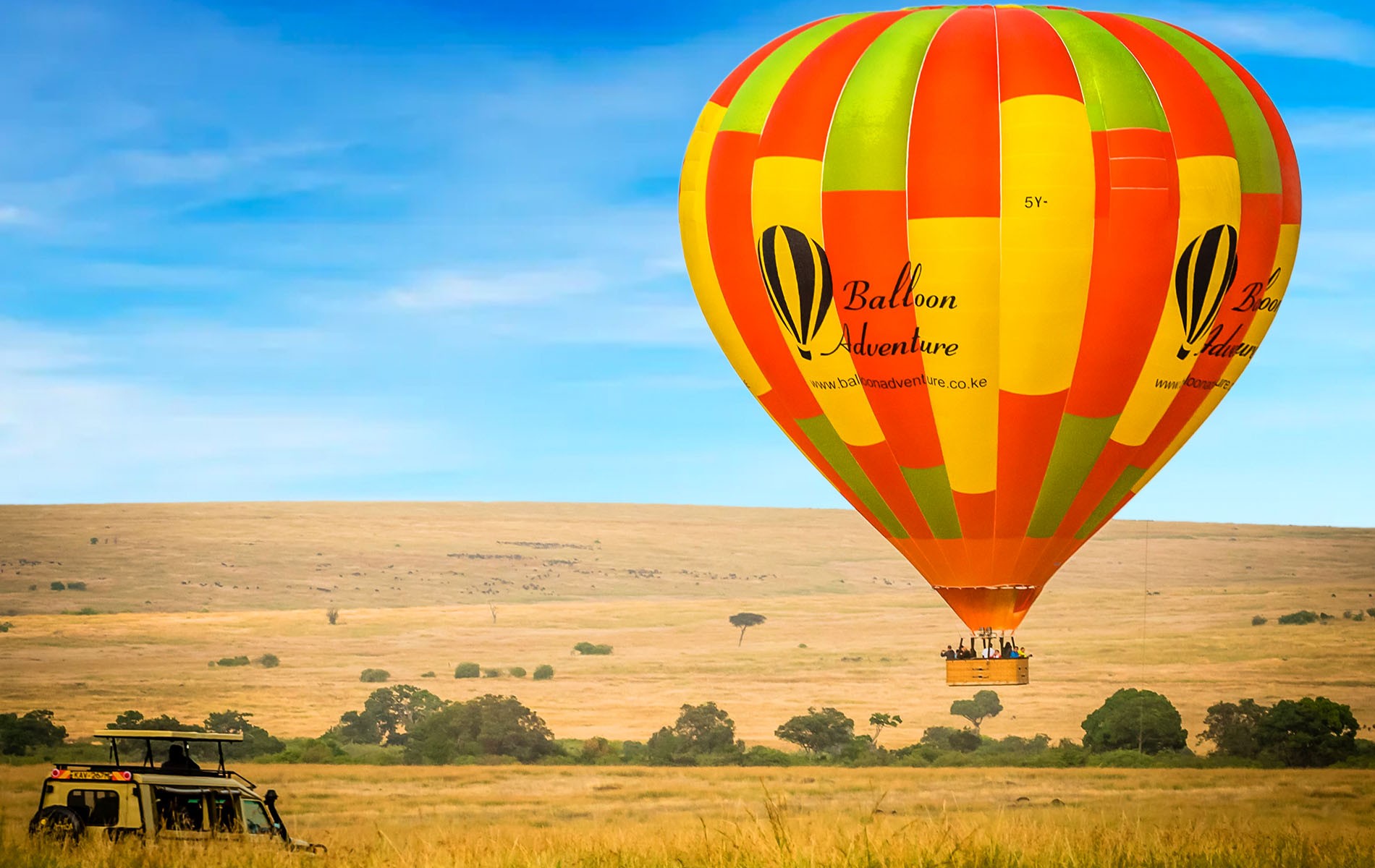
- Guided Nature Hikes
Experience: With the help of knowledgeable experts, guests can go on foot explorations of the wilderness on guided nature walks.
Close Encounter: Offers a personal, up-close encounter with the smallest plants and animals that are frequently overlooked on wildlife drives.
Instructional: The guides impart knowledge about tracking, the therapeutic applications of flora, and the ecosystems that comprise Masai Mara.
Safety: Focused on minimizing environmental effect and conserving animals, the activity is carried out in safe areas.
- Interactions with the Maasai People on a Cultural Level
Engagement: Engaging in cultural experiences entails speaking with the native Maasai people in order to learn about their customs and way of life.
Village Visits: Tourists may get the chance to go to Maasai villages, where they can see traditional dances performed and discover more about their way of life.
Crafts & Art: Handmade crafts, jewelry, and artifacts showcasing the artistic abilities of the people are frequently available at Maasai marketplaces.
Contribution to the Community: Having cultural experiences helps the Maasai communities in the area and gives people a better knowledge of their history.
- The Masai Mara’s wildlife
The wildlife of Masai Mara is home to an astounding array of species, including the well-known Big Five, the magnificent Great Migration, and a diverse array of birds.
- The Big Five
The Big Five: The lion, leopard, elephant, buffalo, and rhinoceros are known to reside in Masai Mara. Game drives are fantastic chances to see these renowned species in their native environment.
Lions: Sightings of prides, cubs, and the spectacular hunting techniques of these apex predators are frequent in the Mara, which is renowned for its profusion of lions.
Leopards: Masai Mara is one of the greatest locations to see these elusive cats because of the thick vegetation that provides them with ideal habitats.
Elephants: Huge herds of elephants roam the riverine woodlands and savannah, giving tourists life-changing experiences.
Buffalos: There are a lot of buffalos in the Mara, and big herds are frequently spotted grazing.
Even if there are still some rhinos in the Masai Mara, it might be challenging to locate them. The other four illustrious members of the Big 5—the lion, leopard, elephant, and buffalo—are far simpler to identify.
- The Great Migration
Overview: With millions of wildebeests, zebras, and other herbivores traveling in search of greener pastures, the Great Migration is one of the most amazing wildlife phenomena on Earth.
Timing: River crossings are a highlight of the migration, which typically occurs from July to October.
River Crossings: The Mara River is a difficult barrier, and seeing big herds try river crossings is an amazing and dramatic sight.
Predator-Prey Interactions: Intense predator-prey interactions result from the migration’s attraction of predators, particularly crocodiles and large cats.
- Distinct Bird Life
Diversity: With a wide variety of resident and migratory bird species, Masai Mara is a birdwatcher’s heaven.
Migratory Birds: A large number of migratory birds stopover in the reserve, contributing to the already abundant local birdlife.
Predators: Eagles, hawks, and vultures are among the raptors that swoop over the savannah; some are even experts at scavenging during the Great Migration.
Waterfowl: A variety of waterfowl, such as storks, herons, and ducks, are drawn to the Mara River and other water sources.
Secretary Birds and Ostriches: In the wide grasslands, one can often find uncommon bird species such as the secretary bird and the ostrich.
- Regional Conservation Initiatives
Community-Led Conservation: To maintain sustainable wildlife management, local communities are involved in a number of conservation activities in Masai Mara.
Anti-Poaching Efforts: Technology, including drones, and anti-poaching units are used to monitor and protect wildlife in order to protect endangered species, such as rhinoceroses.
Protection of Wildlife Corridors: In order to allow animals to roam freely and reduce conflicts between people and wildlife, conservation groups strive to safeguard wildlife corridors.
Research and Monitoring: Ongoing studies and programs for keeping an eye on wildlife in the area help to improve our understanding of its ecology and behavior.
Contribution of tourist: Responsible safari management and sustainable tourist practices help local economies and provide financing for conservation, which highlights the significance of protecting Masai Mara’s distinctive ecology.
- Safari Equipment
Binoculars: A decent set of binoculars makes it easier to see wildlife because you can watch creatures up close without upsetting them.
Camera and Lenses: Use a camera and the right lenses to capture the amazing moments. If you picture animals, think about using a telephoto lens.
Daypack: Whether going on a game drive or a stroll, a compact daypack comes in useful for holding personal belongings and necessities like water, sunscreen, and insect repellent.
Water bottle: It’s important to stay hydrated. To cut down on waste and make sure you always have water on hand, bring reusable water bottles.
Useful for navigating across campgrounds at night and for pre-dawn or post-sunset activities are flashlights and headlamps.
Power Bank: If you depend on your devices for communication or photography, make sure they are always charged with a portable power bank.
Sunglasses: To protect your eyes from the strong sunshine and glare, polarized sunglasses with UV protection are a must.
Keep a simple first aid kit on you at all times, filled with bandages, antiseptic wipes, painkillers, and any personal drugs you may need.
- Guidelines for Interaction with Wildlife in the Masai Mara Safari
Respect Distance: Keeping a respectful distance from wildlife is essential for both their welfare and the preservation of their natural habitat. Pay attention to the advice of knowledgeable park rangers and guides who are versed in the habits of various animals and the ideal viewing distances.
Silent Observations: Noise can affect animals in the Masai Mara. It is possible to observe wildlife behavior in a more genuine way when noise levels are kept low. When on game drives or walks, talk quietly and try not to surprise the animals with loud or sudden noises.
No Feeding: Feeding wildlife can create health problems, upset their normal diet, and make them dependent on human food.
- Cultural Sensitivity in Masai Mara Safari
Respecting and fostering strong relationships with the local communities, especially the Maasai people, requires cultural sensitivity when visiting Masai Mara. The following rules apply to cultural sensitivity whilst on a safari in the Masai Mara:
- Respect regional customs and traditions
Understanding: Invest some time in becoming familiar with the social mores, traditions, and practices of the Maasai people as well as those of the other local communities in Masai Mara.
Respect: Be mindful of their manner of living, taking into account their attire, speech, and customs. Refrain from acting in a way that would offend or be improper given their cultural background.
Obtain authorization before taking any photos.
Be courteous and always get permission before snapping pictures of locals, especially in rural areas or private spaces.
Consent: Since some people might not feel comfortable being photographed, getting consent is a sign of respect for people’s privacy and cultural choices.
- Buy Local Crafts Conscientiously
Support Local Artists: When you buy crafts, jewelry, and other items directly from nearby marketplaces and craftsmen, you’re helping the local economy.
Equitable Trade Policies: Pay attention to fair trade policies and make sure the communities you are visiting benefit directly from the things you buy.
When in a cultural setting, dress modestly:
Modesty: Respect local customs by dressing modestly when in cultural and village contexts. Keep your attire from being too provocative or exposing.
Adapt to Local Styles: Changing your clothes to fit in with the community’s fashions is a great way to show respect and interact with the locals.
- Respect sacred spots and customs
Recognize cultural customs and holy locations. Do not interfere with or trespass against these sites or activities.
Advice from Guides: Pay attention to the advise of neighborhood guides who are knowledgeable about customs and can offer advice on proper conduct.
- Recognize Cultural Events
Engagement: If extended an invitation, contemplate taking part in cultural events or festivities. This can improve your comprehension of regional customs and promote constructive relationships.
Observation: If taking part in cultural activities is inappropriate, do so with grace and observe and enjoy them from a distance.
- Health Concerns and Precautions
To have a safe and comfortable safari experience in Masai Mara, it is important to consider a variety of health problems. Here are some things to think about and avoid doing for your health:
- Immunizations & Vaccinations
Regular vaccines: Verify that your child has had the most recent doses of vaccines against measles, mumps, rubella, diphtheria, tetanus, and pertussis.
Travel immunizations: Seek advice from a medical professional regarding immunizations against meningitis, typhoid, and hepatitis A and B.
- Malaria Prevention
Antimalarial Drugs: The Masai Mara region is endemic for malaria. To find the best antimalarial drug for your travel, speak with a medical professional.
Apply insect repellent containing DEET to exposed areas of skin and clothes to lower the chance of mosquito bites.
Protective Clothes: Since mosquitoes are most active at dawn and nightfall, wear long sleeves, pants, and closed shoes.
- Food and Water Safety
Bottled or Purified Water: To prevent contracting waterborne infections, only consume bottled or appropriately purified water.
Steer Clear of Raw Foods: Only eat fully cooked meals; steer clear of raw or undercooked fish and meats.
Peel Fruits and Vegetables: To lower the danger of contamination, peel fruits and vegetables or select things that can be peeled.
- Altitude Consideration
Consider gradual adjustment to lower your risk of altitude sickness if your safari takes you to higher altitudes, such the adjacent Rift Valley.
Hydration: To stay hydrated, especially at higher altitudes, drink a lot of water.
Apply insect repellent to avoid getting bitten by insects.
- Insurance for Travel
Obtain comprehensive coverage by purchasing travel insurance that includes evacuation, medical emergencies, and trip cancellation protection.
Keep the contact details for your travel insurance company and the nearby medical facilities on hand.
- Post-Safari Activities
These activities help you keep the memories of your Masai Mara experience alive and give safari operators insightful feedback so they can improve the experiences they provide to guests in the future.
- Reviewing and Sorting Pictures
Moments to Remember: Spend some time going through and sorting through the pictures and videos you took on the safari. Relive the special times and wildlife encounters.
Make Records: Put your pictures in albums and label them according to various features of the safari, such particular species, locations, or activities.
Editing: If you’re passionate about photography, think about doing color correction or lighting adjustments to your images. This may help to produce breathtaking visual recollections.
- Contemplating the Event
Journaling: Write down your impressions, feelings, and the main points of your safari experience. Note specifics about sceneries, wildlife observations, and any unusual experiences.
Learning Points: List any knowledge or understanding you learned from the safari. This can be learning more about wildlife behavior, ecology, or the conservation initiatives in Masai Mara.
- Giving Safari Operators Feedback
Constructive criticism: Let the safari operators know what you think. Draw attention to good experiences, praise superior customer service, and offer helpful criticism on areas that need work.
Thank your guide (if you had one) for all of their help in making your safari an unforgettable experience. Their knowledge, experience, and skill are greatly appreciated.
Make suggestions for upcoming travelers, including information on lodging, safari activities, and any extra services offered.

